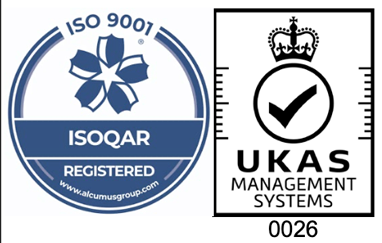Aquaseal gains BSI ISO 9001:2015 Accreditation
17th October, 2018
How are British Standards made?
Though the BSI awards standards, it does not produce them. The production of standards is decentralized, meaning each standard goes through a panel of industry experts before it is approved for use and issued.
When a new standard is due to be produced, the BSI Governing Board establishes a standards board. They; in turn; set up Sector Boards (i.e. for Quality, Agriculture, Fire, and ICT).
The Sector Board is responsible for constituting specialised groups known as Technical Committees. For a standard to be issued, it must be formally approved by a Technical Committee and presented to the relevant Sector Board’s Secretary of supervision. The Secretary’s role is to endorse the Technical Committee’s work and declare that it has completed the relevant task for which it was created.
What are ISO 9000 and ISO 9001?
British Standards are organised into number and letter classes that indicate their purpose. They are laid out like this:
British Standard XXXX[-P]:YYYY
Key:
XXXX = Number of the standard
P = Number of the part of the standard (if the standard is split into multiple parts)
YYYY = Year the standard came into place
The ISO 9000 standard family governs quality management systems in business; especially for manufacturing and retail. Adhering to these standards is a great way for companies to show that they want to meet the needs of their customers and stakeholders.
ISO 9001 deals with the requirements that organisations wanting to meet the standard need to fulfil. Usually, a company’s ISO 9001 certification is confirmed by an independent third-party body. Over one million organisations are ISO 9001 certified worldwide, as it is one of the most widely adopted management tools globally.
What’s new in BS ISO 9001:2015?
To meet the changing needs of the working world, ISO 9001:2015 has been adapted to reflect concerns raised about its predecessor; ISO 9001:2008.
It focuses on performance and implements the Plan-Do-Check-Act cycle for all levels of an organisation.
Additional key changes are as follows:
- Increased understanding that those at the top of an organisation are involved, accountable, and required to oversee the alignment of quality with wider business strategy
- Emphasis on building management systems that are suited specifically to an organisation’s individual needs
- Integration of risk-based thinking into every level of the organisation’s management system – this makes the standard a preventative tool that encourages continuous improvement
- Looser restrictions on documentation – companies can now decide on which documented information it needs, and the format it’s in
- Inclusion of Knowledge Management principles
Why is Aquaseal proud of our ISO 9001:2015 accreditation?
Aquaseal’s ISO 9001:2015 accreditation exemplifies our dedication to enhancing operational efficiency. It shows we’re committed to minimising waste, improving efficiency, and saving money on every project we undertake. Because the standard is so overarching, it guarantees a consistent approach across each of our client’s projects.
Within the organisation itself, our staff adhere to the standard by:
Ensuring their work is of the highest standard
Using our management system to document their processes
Helping other employees maintain a high level of consistency and quality in their work
Plus, when we work with ISO 9001:2015 clients we are able to rest assured that our products are subject to rigorous quality assurance checks even after they leave the factory.
Rubber products from Aquaseal
Aquaseal’s rubber products are available in a range of different types; from natural to synthetic materials. We produce bespoke and standard products in a variety of grades and hardnesses, which are suitable for all applications.
For a quote, get in touch with a member of our team today.


